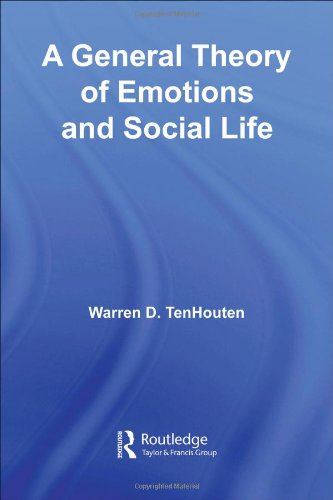

Most ebook files are in PDF format, so you can easily read them using various software such as Foxit Reader or directly on the Google Chrome browser.
Some ebook files are released by publishers in other formats such as .awz, .mobi, .epub, .fb2, etc. You may need to install specific software to read these formats on mobile/PC, such as Calibre.
Please read the tutorial at this link. https://ebooknice.com/page/post?id=faq
We offer FREE conversion to the popular formats you request; however, this may take some time. Therefore, right after payment, please email us, and we will try to provide the service as quickly as possible.
For some exceptional file formats or broken links (if any), please refrain from opening any disputes. Instead, email us first, and we will try to assist within a maximum of 6 hours.
EbookNice Team

Status:
Available0.0
0 reviewsFounded upon the psychoevolutionary theories of Darwin, Plutchik and Izard, a general socioevolutionary theory of the emotions - affect-spectrum theory - classifies a wide spectrum of the emotions and analyzes them on the sociological, psychological and neurobiological levels.
This neurocognitive sociology of the emotions supersedes the major theoretical perspectives developed in the sociology of emotions by showing primary emotions to be adaptive reactions to fundamental problems of life which have evolved into elementary social relationships and which can predict occurrences of the entire spectrum of primary, complex secondary, and tertiary emotions.
Written by leading social theorist Warren D. TenHouten, this book presents an encyclopaedic classification of the emotions, describing forty-six emotions in detail, and presenting a general multilevel theory of emotions and social life. The scope of coverage of this key work is highly topical and comprehensive, and includes the development of emotions in childhood, symbolic elaboration of complex emotions, emotions management, violence, and cultural and gender differences. While primary emotions have clearly defined valences, this theory shows that complex emotions obey no algebraic law and that all emotions have both creative and destructive potentialities.